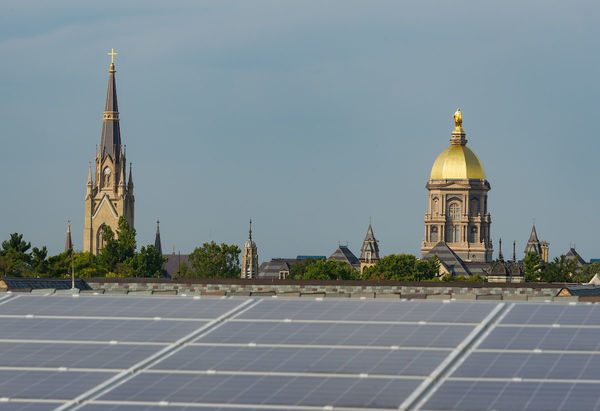Energy & Emissions

Energy consumption is an integral part of civilization—heating our buildings, lighting our way, fueling our travel, and fostering communication and convenience. But our appetite for energy has had a major impact on the Earth’s climate and resilience. While the University historically has relied heavily on nonrenewable fossil fuels, such as coal and natural gas, we now understand better how their use negatively impacts the environment. The harvesting of these fossil fuels and the emissions they produce contribute to climate change. Climate change increases the prevalence of rising sea levels and intensifies storms and drought, all of which add to human suffering. As a Catholic university, we strive to be responsible stewards of the Earth and its resources. We strive to respect all the people with whom we share the planet and to leave a legacy for generations far into the future.
In our endeavor to act as good stewards, the University has worked to manage the emissions and pollutants caused by our energy production. In 2010, we set our first emissions-related sustainability goal, striving by 2030 to reduce our Scope 1 and 2 carbon emissions by 50% per gross square foot from 2005 levels. Our long-range plan is to reduce such emissions by 83% from 2005 levels by 2050 and eventually become carbon neutral. In September, 2019, the University ceased its burning of coal one year ahead of the 2020 scheduled goal.